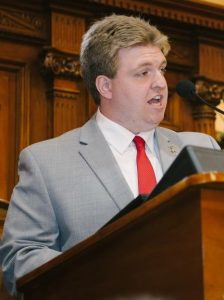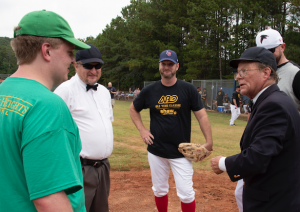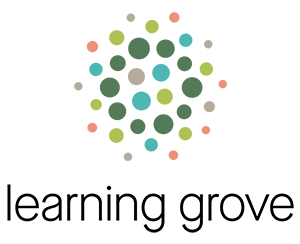By Maridith Yahl
NKyTribune reporter
Baseball is iconic. It is an American family tradition. There is something about the game that brings a spirit of togetherness.
Taylor Duncan, a determined and inspiring young man, took his passion and love for the game and channeled it into founding the Alternative Baseball Organization (ABO), a baseball experience for those with autism and other disabilities.

Taylor Duncan (Photos provided)
Duncan knows the challenges these athletes face. He went through them himself. Duncan is autistic.
“Raising awareness and acceptance for autism and other disabilities,” he says, is how the ABO began. The organization promotes the importance of inclusion and showcases that the players are just as capable as anyone.
“I’ve always been a big fan of the game growing up, but I was often not given the opportunity to play competitive sports,” says Duncan.
He says he faced a lot of preconceived ideas and social stigma about what he could or could not accomplish because of autism. These misconceptions by others kept him from participating in experiences he wanted and knew he could do.
He did have those who believed in him and supported him. His mother and some teachers, mentors, and coaches did give him opportunities that shaped him and got him where he is today. He enjoys using the skills he learned from these experiences to teach others the value of teamwork, encouragement, and empowerment.

Giving these skills to others, he says, should be done not only in good times but especially in bad times. He wants to instill these valuable attributes so that the players in his organization can be successful, in a career and society.
In 2013 Duncan started a men’s slow pitch team which led to him coaching men’s teams, competitive charity softball tournaments, and church softball leagues. goodwill of sportsAfter a while, he decided that people like himself would be grateful for such opportunities.
He felt as if some were taking sports for granted. Sports are Americana, part of our culture, he says. To him, most saw it as winning or losing, but he does not.
“It’s about the goodwill of the sports. It’s about teaching the lessons that can be learned to really influence us, to be the best versions of ourselves possible, and to develop character and integrity and respect for one another,” says Duncan.
Before the pandemic, the ABO had 20 teams across the country. He worried about how they would continue, but instead, they grew dramatically. Now there are 70 teams from Hawaii to Maine who compete using MLB rules.
Now, Duncan is looking to start a team in Northern Kentucky.

For players to be able to compete, the ABO is looking for not only players but also managers and coaches. ABO is so important because it provides valuable services and skill-building that are no longer available after high school graduation. Social interaction, encouragement, empowerment, and team building are all attributes that need continued building. And for some, this is the first time they have experienced these.
To play in the ABO, one with autism needs to be 15 years or older. There is no maximum age. No experience playing the game is needed.
“I call it a baseball experience rather than a baseball league because it’s about forming friendships,” says Duncan. The skills learned will be used for the rest of their lives.
For those volunteering to manage or coach, experience is desirable but not required. The main attribute is being willing to share time and having patience with the players.
“Willingness to really encourage our players to become the best versions of themselves possible and to instill confidence in them so they can go out and achieve whatever they want to go out and achieve,” says Duncan.

When the ABO began, Duncan intended it to be a local campaign to raise awareness about autism. Then, major networks began airing segments about them.
“That’s when I learned that there was such a much bigger need than even I truly realized,” he says.
Humble is one word that describes Duncan. He praises and gives the credit to all of those who have helped make the ABO and campaign such a huge success. He points out the umpires, managers, coaches who volunteer their time. He is thankful for the parents who drive the players to and from practices and games. And he praises the players who choose to participate, breaking away from their anxiety.
“It’s really everyone who makes this organization go around and we would not be where we are today without [them],” he says.
His faith guides him too, he credits where he is today to God and Christ, he says. Good and bad experiences in his life have shaped who he is now. He wants to provide experiences to all of those who desire the same opportunities he once did.
Duncan relishes seeing what those in ABO have accomplished. He is inspired by the support given to them. “Anybody can be successful in their own way, it’s just that maybe it’s not in the way that we thought,” he says. Success could be even greater than we imagined, he says.
To provide encouragement and empowerment to the players, go to the ABO website to sign up to volunteer or find other ways you can get involved.
America’s pastime brings generations together. It brings hope and some turn into a kid again.
“[Success] does exist for everyone and there is hope out there for everyone,” says Duncan.
Someone just needs to step up, volunteer, and provide that hope. Provide the magic of baseball.


















